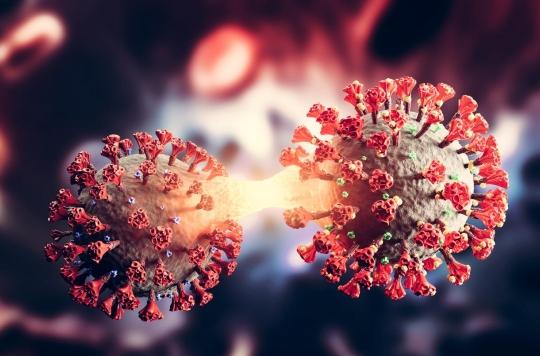“Khosta-2” is a new virus from the coronavirus family. The latter would be able to infect human cells and, for the moment, would resist vaccines.

- As of September 23, 37,524 new cases of Covid-19 have been recorded in the past 24 hours.
- The incidence rate is currently 314.4.
Currently, Omicron represents 100% of the variants among the sequenced viruses, according to Public health France. While some vaccines have been developed to protect against Covid-19 but also against this varianta new virus from the coronavirus family, called “Khosta-2”, could be a source of concern in the coming months.
Khosta-2 could infect human cells
This virus was discovered in 2020 in Russia. At the time, scientists believed it could not be transmitted to humans. A theory that has just been contradicted by a new study published in the journal PLoS Pathogens. US researchers say Khosta-2 could infect human cells.
So far, the authors’ observations have only been made in the laboratory. But, thanks to their experiments, they understood how Khosta-2 acted. Like SARS-CoV-2, another virus from the coronavirus subfamily called “sarbecovirus”, two Khosta-2 proteins, namely spike and RBD, bind to the ACE2 protein on the cell surface.
Khosta-A resists Covid-19 vaccines
The team also observed that Khosta-2 was able to resist antibodies generated by vaccination against Covid-19. “We don’t want to scare anyone by saying that this is a totally vaccine resistant virus, explained Michael Letko, lead author of the study. However, it is concerning that there are viruses circulating in nature that have these properties, that they can bind to human receptors and that they are not neutralized by current vaccine responses.“.
Several viruses of the sarbecovirus family have been discovered in recent years, but almost all of them were unable to infect human cells. In their study, the researchers explained that Khosta-1 presented a low risk for humans but that Khosta-2 therefore has properties similar to Covid-19 which may be of concern. “We were really surprised to find that they [Khosta-1 et Khosta-2] could infect human cells, continued Michael Letko. This changes our understanding of these viruses a bit, where they come from and which regions are of concern.”.
Create new vaccines against sarbecoviruses
The latest generation of vaccines developed for Covid-19 is called bivalent. They make it possible to fight against the original strain of the virus and against the Omicron variant. “Currently, researchers are trying to find a vaccine that protects against the next variants of Covid-19, but also against sarbecoviruses in general, insisted Michael Letko. Unfortunately, many of our current vaccines are designed for specific viruses that we know infect human cells or those that appear to pose the greatest risk of infecting us. But it’s a constantly changing list. We need to expand the design of these vaccines to protect against all sarbecoviruses”.


















